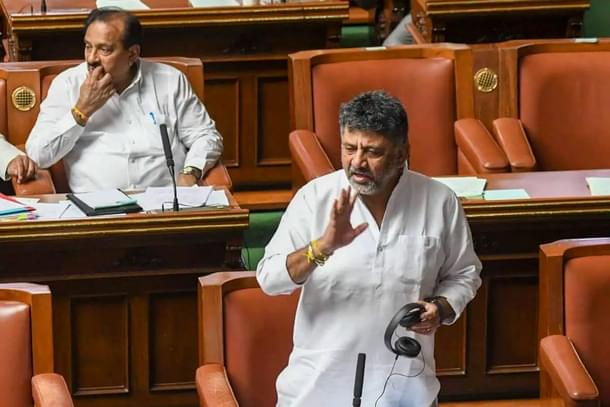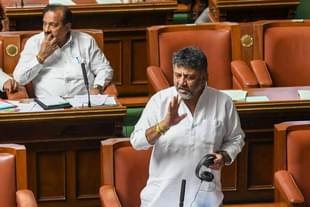News Brief
Kannadigas Sidelined? Karnataka Passes Greater Bengaluru Bill To Divide Capital, BJP Warns Dilution Of Native Representation
Swarajya Staff
Mar 11, 2025, 12:21 PM | Updated 12:21 PM IST
Save & read from anywhere!
Bookmark stories for easy access on any device or the Swarajya app.


The Karnataka Legislative Assembly on Monday (10 March) approved the Greater Bengaluru Governance Bill 2024, paving the way for the establishment of the Greater Bengaluru Authority (GBA) to coordinate and oversee the city’s administration, reported The Hindu.
However, the legislation has sparked sharp opposition, particularly over concerns that it could dilute Kannadiga political influence in the city.
BJP Opposes Division of Bengaluru, Raises Kannadiga Identity Concerns
A key point of contention in the bill is the proposal to divide Bengaluru into a maximum of seven municipal corporations, a move that the BJP strongly opposed.
The opposition argued that splitting the city would diminish the control of native Kannadigas over administration, particularly in areas with a dominant non-Kannadiga population.
Leader of the Opposition R Ashok described the bill as an “emotional issue” and cautioned that the government would have to “face the curse of future generations” if it proceeded with the plan, he was quoted as saying by The Hindu.
He pointed out that in many localities, especially those dominated by migrants from other states, Kannadigas would lose their political voice, potentially leading to governance that does not reflect the interests of the native population.
Ashok further argued that similar experiments with multiple corporations had failed in other cities like Delhi, leading to revenue imbalances.
He warned that corporations in IT-rich areas like Mahadevapura would generate significantly more revenue, while others would struggle for funds, creating deep economic disparities within Bengaluru.
Concerns Over Political Discrimination in Governance
Other BJP legislators, including Yelahanka MLA S R Vishwanath, expressed fears that the Congress-led government could politically discriminate while allocating funds to different corporations, especially if different parties held power in the state and municipal bodies.
They urged the government to wait until the delimitation exercise was completed, ensuring clarity on Assembly constituency boundaries before implementing such a significant administrative change.
Congress Defends the Bill as Necessary for Bengaluru’s Future
Congress leaders, however, defended the legislation, arguing that Bengaluru’s governance needed restructuring to address the city’s mounting civic issues.
Shivajinagar MLA Rizwan Arshad, who led the Joint Select Committee, emphasised that different parts of the city face different challenges, making decentralisation essential for effective administration.
Deputy Chief Minister D K Shivakumar also rejected claims that the bill aimed to break Bengaluru’s unity.
He stated that the city’s infrastructure struggles, including waste management, drainage, water supply, and traffic, required better governance. “We are only strengthening the city, not splitting it. If districts can be divided for administrative efficiency, why not Bengaluru?” he questioned.





